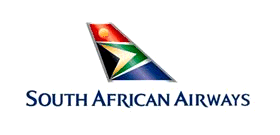 Opinion: Time to pull the plug on SAA
Opinion: Time to pull the plug on SAA
South African Airways has been on life support for more than a decade - it is time to pull the plug! Our society cannot afford the luxury of a national airline in the midst of the many legitimate demands on our limited national resources. The Covid-19 pandemic is an opportunity to re-order our priorities and invest our limited resources in promoting national well-being by tackling the inequities in our society.
There can be no greater national interest than tackling widespread poverty, unemployment and inequalities that are humiliating so many. Responding to the basic needs of those marginalised over the last 26 years is an urgent task given that they are now at most risk of contracting and transmitting the coronavirus.
Trade unions that are putting relentless pressure on Minister Gordhan to keep SAA alive need to look beyond the risks of job losses amongst their members and consider broader national interests. Studies across the globe by well-known experts including Nobel Prize winner, Joseph Stiglitz; Climate Economist, Nick Stern, advise against stimulus packages that promote "business as usual" policies and strongly champion policies that promote well-being for all people and our environment.
We need to assume our responsibilities as taxpayers to actively mobilise others to make our voices heard against continuing to allow organised labour to call the shots on the future of SAA at the expense of the public purse.
The interests of many millions of young people who are locked out of the formal job market should not be sacrificed yet again on our watch. Taxpayers and advocacy civil society organisations need to challenge the privileging of organised labour over the adoption and execution of sound policies that promote the greatest benefits for most citizens in these uncertain times.
The President’s call to the nation to address the dreams of millions of citizens that can no longer be delayed will require significant redeployment of our very limited fiscal and human resources.
The entire country is at risk of being unable to flatten the curve and save more lives threatened by Covid-19 given the inadequate essential water and sanitation infrastructure; dignified human settlements and school and healthcare facilities. At a broader level, the establishment of a National Health Service is an urgent platform of collaboration between the public and private sector that will require significant public resources.
Covid-19 gives us the opportunity to join many countries in the world that have over the past decades migrated from national airlines to national flag carriers.
Countries with stronger economies such as the UK, France, Germany, Scandinavian Region, Ireland and Turkey have opted for strongly branded national flag carriers rather than the bottomless pit of national carriers.
How can we justify continuing to sustain SAA that has been mortally wounded by state capture and chronic poor management since 1994? There are now enough multiple airlines to service all the major routes essential to meet the needs of our economy, trade and industries.
The post-Covid-19 global environment is a tough one for the airline industry.
Our SAA that has been kept on life support funded by the taxpayer has no chance of surviving the competition in a world where travel is likely to remain constrained.
It is time for us to do the final rites for our national airline.
The New Economy being championed by President Ramaphosa has better potential to create new types of jobs.
Laying the infrastructure for decentralized renewable energy to ensure access to electricity by all communities; rejuvenating capitalisation of land reform and restitution programs to enable rural livelihoods and food security; closing the digital divide in preparation for broad participation by citizens in the digital economy are some of the avenues we need to be exploring to create sustainable jobs and livelihoods.
Effective and efficient execution of the District Based Development Model in both rural and urban areas should become a priority beyond the focus on the State of National Disaster.
Participatory community level development is essential to successful sustainable uprooting poverty and creating inclusive prosperity for all.
Communities across the nation have shown their resourcefulness and hunger for taking ownership of shared social infrastructure including care for the environment, building their own homes, as well as producing food for own consumption as well as for the market.
Urban communities are also engaged in small and medium enterprises that create and sustain livelihoods across the country.
What they need is an enabling policy environment to provide working capital and responsive local authorities that hold ward councillors accountable for ensuring effective water and sanitation services.
Successful nations are those who learn to move on from failure having learnt the lessons to enable them to shape futures that are more resilient, inclusive and prosperous.
- Mamphela Ramphele, Co-Founder of ReimagineSA and Co-President of the Club of Rome
